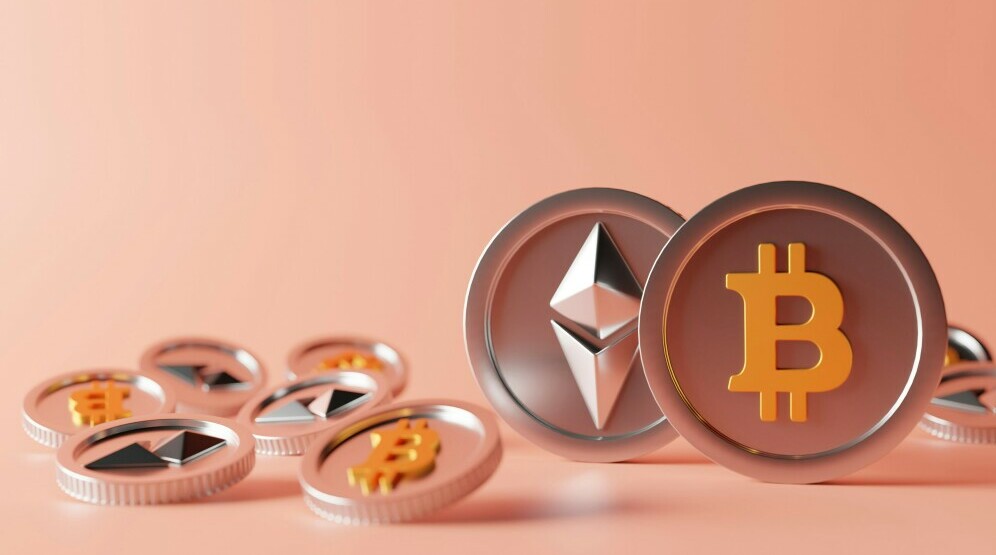If you’re stepping into the world of cryptocurrencies, grasping the nuts and bolts of how to safeguard your digital assets is crucial. A cryptocurrency wallet doesn’t just hold your coins; it’s also home to your private keys, the critical element that proves ownership of your digital currency. So, let’s kick things off with a clear understanding of the primary types of wallets at your disposal: the hot wallet and the cold wallet.
Hot wallets are like the wallets you carry in your pockets: readily accessible but also vulnerable if not handled with care. They’re connected to the internet, making transactions smooth and quick, but this accessibility comes with increased risks. In contrast, cold wallets operate offline, providing an added layer of security against the onslaught of online threats. They’re akin to a safe deposit box, less convenient for quick transactions, but substantially more secure for long-term storage of your cryptocurrency.

Another non-negotiable aspect of cryptocurrency security is prudent private key management. Your private key is akin to the combination to a safe: if someone else gets their hands on it, your funds are at their mercy. Keeping your private key confidential and protected is as important as keeping your real-world wallet safe from pickpockets.
Ultimately, your wallet’s security doesn’t only affect your peace of mind; it directly impacts your financial safety in the crypto realm. A compromised wallet can lead to the loss of your cryptocurrencies, much like a hole in your physical wallet would lead to lost cash and cards. With these fundamentals in mind, you’re going to reflect on their practical implications for daily usage and maintenance of your wallet in the next segment.
Best Practices for Protecting Your Cryptocurrency Wallet
I’m going to talk about some critical habits that you should adopt to protect your cryptocurrency wallet. Think of them not just as one-off tasks, but as part of your routine in digital asset management.
First up, keep your wallet software updated. Just like any other software, wallets get improvements and security patches over time. Running the latest version means you’re benefiting from the strongest defenses against recent threats.
Don’t underestimate the power of a strong, unique password. I’m talking about a complex string that isn’t reused across multiple platforms. Combine letters, numbers, and symbols to make it tough for anyone trying to gain unauthorized access.
Multi-factor authentication (MFA) provides an additional layer of security, and I always recommend using it. This could be a text message, a biometric check, or an authenticator app. Even if somebody cracks your password, without the second factor, they’re not getting into your wallet.
Finally, a word about private keys: these are the essence of your wallet’s security and should be kept confidential. Sharing them is akin to giving away your entire bank account — so keep them to yourself at all times.
Technological Safeguards to Enhance Wallet Security
You might have heard people say that technology is a double-edged sword, especially when it comes to digital assets like cryptocurrencies. I’m going to show you how to make technology work for you, not against you, in safeguarding your digital treasure trove.
Think about hardware wallets like a personal vault. They’re a type of cold storage, meaning they aren’t connected to the internet, and that’s a big plus for security. Brands like Ledger or Trezor offer devices that keep your private keys offline. So even if a hacker breaches a network, your cryptocurrency stays safe with you.
Backing up your wallet might seem like an old-school idea, but trust me, it’s still golden. You can use dedicated services or simple external drives for this. Just make sure that whatever you choose, it’s encrypted and stored in a secure location. That way, even if you lose access to your main device, you’re not waving goodbye to your investments.
Finally, remember that the words you exchange about your wallet should also be secure. Using encrypted chat apps for discussions about your wallet details can prevent eavesdroppers from grabbing your sensitive information.
In the next section, we’re going to delve into creating a personal strategy for wallet security. Because remember, having the right tools is one thing, but knowing how to use them? That’s where the real power lies.
Devising a Personal Cryptocurrency Wallet Security Strategy
You’re going to find out about the need for proactive security measures in safeguarding your cryptocurrency wallet. This isn’t just about using the latest tools; it’s also about having a plan in place.
I’m here to help you with organizing regular check-ups for your digital wallet, just like you would with your physical health. Periodic security audits can reveal vulnerabilities before they’re exploited.
If you want to be prepared for the worst, don’t worry too much about it seeming over-the-top. You can always craft a disaster recovery plan. This might include secure backups of your private keys and having a trusted contact who knows how to access your funds in case you’re unable to.
Choose something that resonates with you when it comes to continuous education. Whether it’s subscribing to a cybersecurity newsletter or joining a forum, staying updated on the latest threats and security trends is paramount. Imagine being one step ahead of a potential breach because you knew exactly what to look out for.
Your first attempt at a comprehensive security strategy doesn’t need to be perfect. Just don’t focus too much on getting it exact from the get-go. You can always adjust your approach down the road as you gather more knowledge and the landscape of cryptocurrency threats evolves.
I really hope that you adopt these practices and adapt them to suit your needs. Remember, in the fast-paced world of cryptocurrency, security is not a one-off task but an ongoing commitment. Now that we’ve covered the essentials of securing your cryptocurrency wallet, the power is in your hands. Let’s secure your digital assets for the long haul.

Wow, there’s so much to be mindful of when it comes to cryptocurrency. I agree that protecting your wallet is crucial. It’s certainly essential to develop those good habits you spoke of updating the software, using strong passwords, MFAs and guarding those keys. But I don’t know how to back up my wallet securely. I always thought it was safer not to mess with it. I must admit I am just getting into using cryptocurrency. And I would appreciate it if you could recommend a good cybersecurity newsletter or forum for me.
Thank you for your thoughtful comment, Sukundi! 🌟 You’re absolutely right, safeguarding your cryptocurrency wallet is vital, and developing strong security habits is key. When it comes to backing up your wallet securely, it’s important to use a combination of secure digital backups and physical backups. For digital backups, consider using encrypted USB drives or secure cloud storage with strong passwords and two-factor authentication (2FA). For physical backups, you can write down your recovery phrases on paper and store them in a safe place.
As for recommendations, I highly suggest checking out the following resources for cybersecurity and cryptocurrency:
1. **Newsletter**: [Krebs on Security](https://krebsonsecurity.com/) by Brian Krebs offers great insights on cybersecurity.
2. **Forum**: [Bitcointalk](https://bitcointalk.org/) is a popular forum where you can find discussions and advice on all things related to cryptocurrency.
Feel free to reach out if you have any more questions! 🚀 #Cryptocurrency #Cybersecurity #CryptoWallet #StaySafe #CryptoTips
Gary S